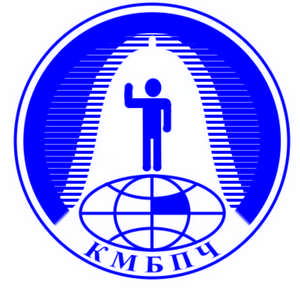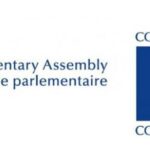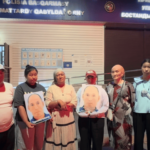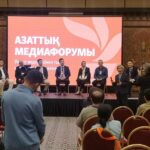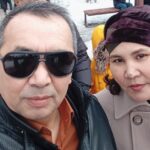STATEMENT
of Kazakhstan International Bureau for Human Rights and Rule of Law
«IN KAZAKHSTAN THE RIGHT TO FORM AND JOIN TRADE UNIONS IS
GROSSLY VIOLATED AND WORKING ACTIVISTS ARE SUBJECTED TO PERSECUTION»
On 16 May 2017 Almaty District Court No. 2 of Astana sentenced Amin Yeleusinov, the chairman of Oil Construction Company LLP, to two years of imprisonment with a five-year ban on engagement in public activities after release and payment of “damages” to the suffered company. The court took such a decision despite the fact that Yeleusinov admitted his guilt and had to agree to plea-bargaining.
Amin Yeleusinov was detained on 20 January 2017 in Aktau and brought secretly to Astana where the trial was held. He was charged under four articles of the Criminal Code: “Misappropriation or embezzlement of property of another person in an especially large amount”, “Insult of a representative of authority committed in public or using media or telecommunications networks”, “Insubordination against a representative of authority” and “Use of force against a representative of authority”.
Previously the same district court convicted a trade union activist of Oil Construction Company (and deputy chairman of the Confederation of Independent Trade Unions of the Republic of Kazakhstan – KNPRK) Nurbek Kushakbaev to two and a half years of imprisonment. He was convicted under a new article of the Criminal Code “Actions provoking continuation of the participation in a strike adjudicated illegal by court”. Kushakbayev was also prohibited from engaging in public activities for two years after his release and he was also obligated to compensate to “the suffered party” a huge damage the proportionality of which was never justified in court.
During the trial it was found out that the special services had been “wiretapping” phone conversations of both convicts for a long time.
Officially Kushakbayev was charged with “consulting” colleagues from another oil service company, Techno Trading Ltd, the employees of which had carried out strikes several times.
Both court trials are clearly connected with the hunger strike of workers of Oil Construction Company held from 5 January through 22 January 2017 in Aktau in protest against liquidation of the Confederation of Independent Trade Unions of the Republic of Kazakhstan (KNPRK).
The court hearings that took place on 19 January 2017 recognised the hunger strike that took place afterhours as an “illegal strike” and demanded its termination. After the police force intervention the action was stopped, 63 of its participants were brought to trial on charge of violating the Law on Peaceful Assemblies. That was despite the fact that the hunger strike was held indoors or at remote sites. As a result dozens of workers who participated in the hunger strike were dismissed. Kushakbayev and Yeleusinov as activists of the protest movement were brought to trial and convicted.
On 4 January 2017 Specialised Inter-district Economic Court No. 2 of Shymkent made a decision to liquidate KNPRK. Court of Appeal left this decision in force.
On 7 January 2017 in Shymkent a criminal case was brought against the chairman of KNPRK Larisa Kharkova on charge of misappropriation and embezzlement of trade union funds. As a result of the pressure exerted on Kharkova, she was forced to hold a press conference at which she made a statement regarding the legitimacy of closure of the trade union organisation.
In parallel with closure of KNPRK, an independent trade union association that united about one hundred thousand people, the courts continued to close down small independent trade union associations.
There is no doubt that the prison terms imposed on two trade union leaders were the authorities’ response to their position in protection of the trade union association. In their turn the authorities that exerted pressure on legal opposition activities and independent media look at the trade unions as a threat, and in a prolonged economic crisis tried to prevent the consolidation of workers and to stop any attempts to assert both labour rights and rights to freedom of association, including to form trade unions.
The Kazakhstan International Bureau for Human Rights and Rule of Law declares he inadmissibility of using repressive methods both towards the trade union organisations and their leaders and activists.
In 2011 the tragic events in Zhanaozen and Shetpe became a continuation of the policy of the State that refused to hold a dialogue as an equal with its citizens, i.e. in that case oil workers and an independent trade union representing them. It is quite clear now that by suppressing the legitimate aspirations of the working people to unite for protection of their rights and by pursuing a repressive policy towards the most active people, the authorities have come to wrong conclusions as a result of those tragic events.
A number of international organisations, including the International Trade Union Confederation, Amnesty International, Human Rights Watch and others called on the authorities of Kazakhstan to stop the practice of persecution of trade union and workers’ activists and not to interfere with registration and work of independent trade union associations.
Obstruction of the work of trade union organisations is considered as a serious threat to investments and in the midst of economic hard times the State broadly displays its disrespect for fundamental human rights that entails deterioration not only of political reputation but also of economic attraction of the country.
We call on the authorities to release Nurbek Kushakbayev and Amin Yeleusinov, to terminate the criminal case against Larisa Kharkova, to revise the Law on Trade Unions which does not meet international standards and obligations of Kazakhstan in the framework of the conventions of International Labour Organisation and, in general, its attitude towards non-commercial organisations.
23 May 2017

